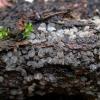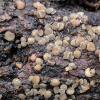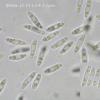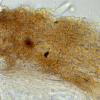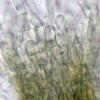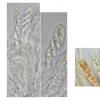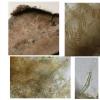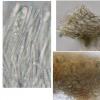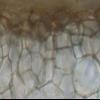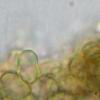
29-11-2024 21:47
Yanick BOULANGERBonjourJ'avais un deuxième échantillon moins mat

27-02-2026 17:51
 Michel Hairaud
Michel Hairaud
Bonjour, Quelqu'un peut il me donner un conseil p

27-02-2026 16:17
 Mathias Hass
Mathias Hass
Hi, Found this on Betula, rather fresh fallen twi

27-02-2026 12:56
Åge OterhalsFound on fallen cones of Pinus sylvestris in midle

27-02-2026 11:21
 Yannick Mourgues
Yannick Mourgues
Hi to all. Here is a specie that can may be relat

26-02-2026 15:00
Me mandan el material seco de Galicia, recolectada

24-02-2026 11:01
Gernot FriebesHi,found on a branch of Tilia, with conidia measur

23-02-2026 11:22
Thomas Læssøehttps://svampe.databasen.org/observations/10584971
About a mollisioïd on burnt Ulex
Michel Hairaud,
21-01-2012 00:23
 Bonjour à tous, Hi to all,
Bonjour à tous, Hi to all, Voici une récolte abondante d'un disco mollisioïde sur tronc brûlé d'Ulex.
L'absence de paraphyses à vacuoles réfringentes conduirait plutôt vers le genre Pyrenopeziza mais je ne trouve pas d'espèce correspondante dans la littérature consultée.
Tt avis sera d une aide précieuse. Merci
Here is an abundant collection of a mollisioid fungus on burnt Ulex
Paraphyses have no Mollisia type Vacuolary Bodies and the reaction in CRB would rather lead to the Genera Pyrenopeziza but there is no species in the litterature I can use matching this collection.
Any help will, once again be welcome.
Ascus 70-85 x 6,5 -7, H-, IKI -
Spores 12-15 x 2,8-3,2, Guttulation 3-4
Amitiés Michel
Hans-Otto Baral,
21-01-2012 11:07

Re : About a mollisioïd on burnt Ulex
No idea!
Can you also show us an image of an ascus?
You are sure with inamyloid and no croziers?
Zotto
Can you also show us an image of an ascus?
You are sure with inamyloid and no croziers?
Zotto
Michel Hairaud,
21-01-2012 15:36

Re : About a mollisioïd on burnt Ulex
Hi Zotto,
You are right to question , for the ascus base is indeed H+ with absolute no doubt .
Iki is actually negative , no lapsus on that
I have to prepare pics showing entire ascus .
Amitiés
Michel
You are right to question , for the ascus base is indeed H+ with absolute no doubt .
Iki is actually negative , no lapsus on that
I have to prepare pics showing entire ascus .
Amitiés
Michel
Michel Hairaud,
22-01-2012 16:25
Hans-Otto Baral,
22-01-2012 19:13

Re : About a mollisioïd on burnt Ulex
Hi Michel
wonderful. I assume you can exclude a Helicogonium? But you have a big population to see if there are two different ascus types.
What I still miss is a photo of the paraphyses. And certainly a section of an apothecium showing margin and one with lower flanks and anchoring hyphae would be great (are there brown anchoring hyphae?).
Sorry, but I have still no idea.
Zotto
wonderful. I assume you can exclude a Helicogonium? But you have a big population to see if there are two different ascus types.
What I still miss is a photo of the paraphyses. And certainly a section of an apothecium showing margin and one with lower flanks and anchoring hyphae would be great (are there brown anchoring hyphae?).
Sorry, but I have still no idea.
Zotto
Michel Hairaud,
25-01-2012 00:25
Hans-Otto Baral,
25-01-2012 08:30

Re : About a mollisioïd on burnt Ulex
Hi Michel
thank you for your willingness to follow my annoying questions.
The colour of the excipulum anmd anchoring hyphae is not in conflict with the genus Mollisia. I am only unsure still about the VBs in the paraphyses. Partly I think I see them but the focus is not exactly on them. What do you think, are they there or not?
By the way, I gave your fungus the provisionary name "michelii" :-)
Zotto
thank you for your willingness to follow my annoying questions.
The colour of the excipulum anmd anchoring hyphae is not in conflict with the genus Mollisia. I am only unsure still about the VBs in the paraphyses. Partly I think I see them but the focus is not exactly on them. What do you think, are they there or not?
By the way, I gave your fungus the provisionary name "michelii" :-)
Zotto
Michel Hairaud,
29-01-2012 13:32

Re : About a mollisioïd on burnt Ulex
Ah ! That's a good piece of humour . Are you sure an innocent fungus (if Mollisioïd fungus can be, which, I confess, is doubtful) may deserve such a burden with this name ?
Even in young apothecia, I cannot find VRH (Vacuole Réfringente Homogène) and the type of paraphyses here have a similar look as in Pyrenopeziza inapiculata for example.
Here are 2 pics of protruding cells from the flanks which appear in olive yellow on young apothecia (in tap water from e Puy de Venus and CRB)
Let's investigate more , once again.
Bon dimanche
Michel
Even in young apothecia, I cannot find VRH (Vacuole Réfringente Homogène) and the type of paraphyses here have a similar look as in Pyrenopeziza inapiculata for example.
Here are 2 pics of protruding cells from the flanks which appear in olive yellow on young apothecia (in tap water from e Puy de Venus and CRB)
Let's investigate more , once again.
Bon dimanche
Michel
Hans-Otto Baral,
29-01-2012 15:04

Re : About a mollisioïd on burnt Ulex
I don't know the fungus, so I don't care for his name :-)
Zotto
Zotto
Andreas Gminder,
29-01-2012 21:17

Re : About a mollisioïd on burnt Ulex
Hello,
I think when the vacuole is really absent - and I have no reason to doubt Michels observation - then it will not be a Mollisia ss.str.. The third picture of your 2nd series, which shows details of the excipulum, also looks more like the isodiametric cells of Pyrenopeziza then like the roundish ones of Mollisia.
As the first results of the molecular investigations seem to clearly separate a group of species with refingent vacuoles (= Mollisia) from a group of species without this vacuole (= Pyrenopeziza s.l.), I would tentatively put this collection to Pyrenopeziza.
So Pyrenopeziza "michelii" nom prov. *gg*
Hopefully you re-find it and can collect me some kilo of it into the small tubes. Then we can at least look molecular where it belongs.
best regards and greetings to Brigtte :-))
Andreas
I think when the vacuole is really absent - and I have no reason to doubt Michels observation - then it will not be a Mollisia ss.str.. The third picture of your 2nd series, which shows details of the excipulum, also looks more like the isodiametric cells of Pyrenopeziza then like the roundish ones of Mollisia.
As the first results of the molecular investigations seem to clearly separate a group of species with refingent vacuoles (= Mollisia) from a group of species without this vacuole (= Pyrenopeziza s.l.), I would tentatively put this collection to Pyrenopeziza.
So Pyrenopeziza "michelii" nom prov. *gg*
Hopefully you re-find it and can collect me some kilo of it into the small tubes. Then we can at least look molecular where it belongs.
best regards and greetings to Brigtte :-))
Andreas
Hans-Otto Baral,
29-01-2012 21:21

Re : About a mollisioïd on burnt Ulex
maybe, yes. But Michel's images show plenty of apothecia. I think that 5 apothecia are enough for a sequence, or what is your experience, Andreas?
Zotto
Zotto
Andreas Gminder,
29-01-2012 21:28

Re : About a mollisioïd on burnt Ulex
Hello Zotto,
they like to have as much as they can get here in Jena :-))
I usually take at least 10 apothecia and give only collections which are rich to sequenzing. Surely I will be content with less when ti comes to the rare or important species. But as long as I have richt collections, I can give them plenty.
best regards,
Andreas
they like to have as much as they can get here in Jena :-))
I usually take at least 10 apothecia and give only collections which are rich to sequenzing. Surely I will be content with less when ti comes to the rare or important species. But as long as I have richt collections, I can give them plenty.
best regards,
Andreas
